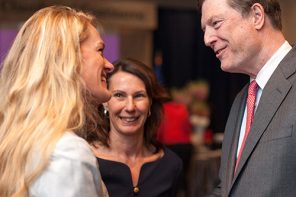I grew up in a conservative Midwest home where opinions on taboo topics were generally regurgitated thoughts from whatever far-right guest was featured on that week’s Meet the Press. Conversation around our holiday dinner table usually (only) involved Big 10 college football standings, never heavy issues that had the potential of raising voices or flinging food (although the latter might have been a better use for the canned cranberry).
The summer I turned 16 I took a five-week trek to Papua New Guinea. From the moment the little Cessna touched down in the green mountains of Goroka, my world view changed. Forever.
Everything my Midwest upbringing had taught me about women’s rights, corporal punishment, spirituality and sexuality were challenged and solidified, narrowed and broadened, stretched and reshaped. My childhood ideals of ‘how things should be’ were turned on their heads.
I spent those weeks deeply immersed in tribal culture. I mourned for the sick who lay suffering on woven mats in their smoke-filled huts, with no chance of recovery. I beamed when given the honor of naming the newborn baby I held in my arms. I came to understand human interaction in a way I never had before, despite the language barrier, and I lived among a people group whose taboos were so vastly different from any I will ever have reason to discuss around my own dinner table.
The idea for this ‘Taboo Issue’ came about while I was driving back from an out of town meeting. Typically I drive in silence (when you have three boys, silence truly is golden), but over this particularly long stretch of bluegrass highway I was listening intently to a podcast about a Wisconsin cop turned Buddhist teacher. As the conversation progressed between host and guest, the female officer shared how she weaved her spiritual practice into her daily work habits, with its positive ramifications eventually transforming her precinct.
And it got me thinking….why don’t we talk about this stuff at work? Why do we avoid asking someone’s take on a piece of legislation in Congress? Why does it feel so awkward mentioning my latest spiritual readings during the initial chit-chat of a business meeting?
These taboos, these topics that we avoid like the plague in the name of “political correctness,” are the very topics that allow us to set superficiality on the shelf.
And the women behind these taboos? That’s what interests me the most. They are the wise and powerful movers and shakers, many of them choosing to remain behind the scenes, laying the groundwork in the industries that we so trepidatiously run from.
Within the pages of this issue, I’m inviting you to join me at the dinner table. Let me introduce you to some of my guests. We may not all agree on the topics at hand during the course of this meal, but I bet we’ll find some common ground. And maybe, just maybe, your view of ‘how things should be’ will be turned on its head. If nothing else, at least we’ll all enjoy the cake and whiskey.





